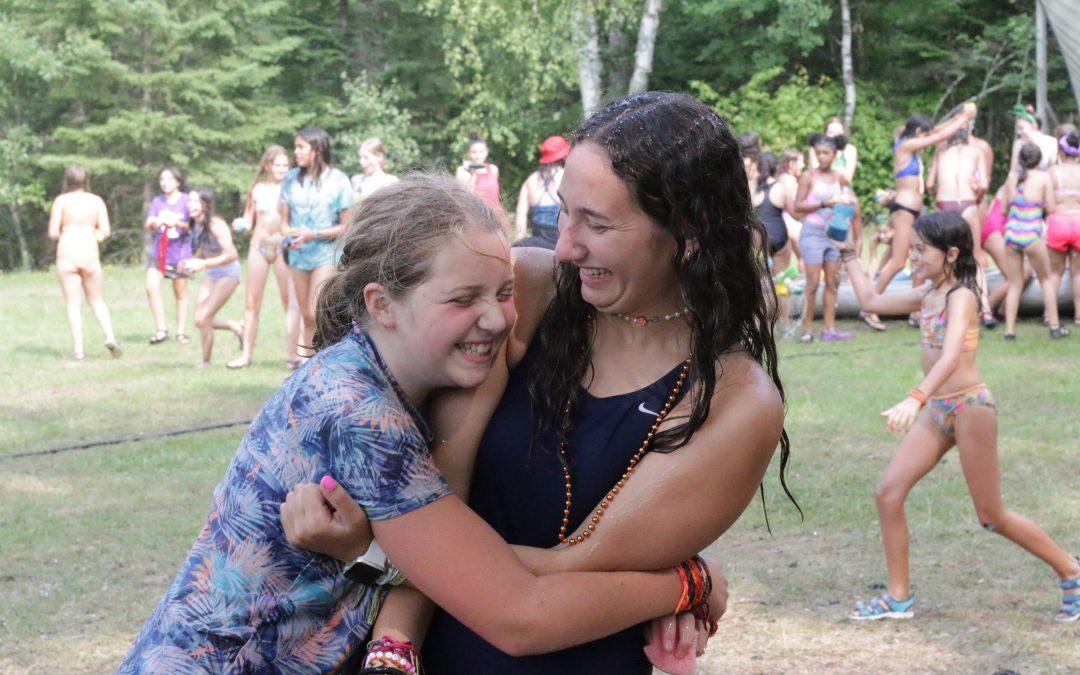Navigating the teenage years and looking to make new friends? Maybe you’re a parent reading this to help your daughter, or you’re a teenager looking to expand your friend group. If you’ve struggled before, learning to make new friends isn’t about quick fixes—it’s about understanding and applying key habits that foster genuine relationships. Dive into these 11 tips and build a circle of friends who get you.
1) The Power of Positivity
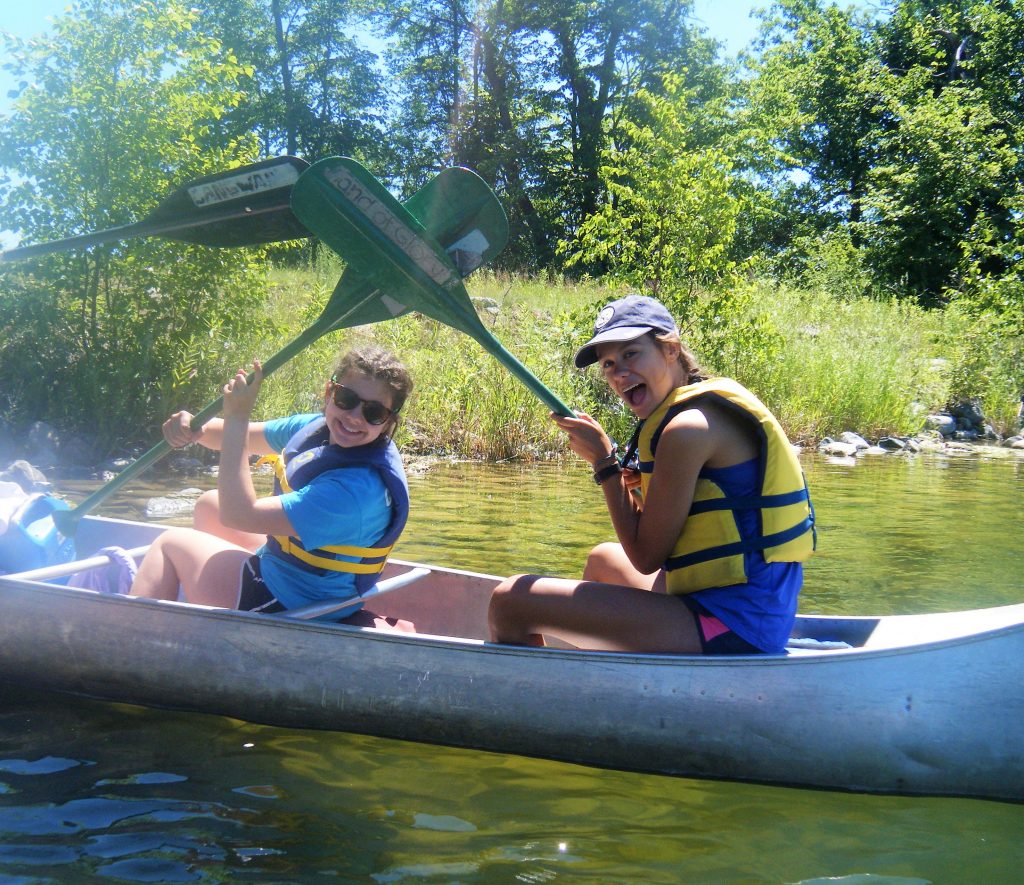
Girls making friends in a canoe at Camp Kamaji
It’s no secret that positivity attracts people like a magnet. A positive attitude makes you more approachable and enjoyable and creates an inviting social atmosphere that attracts new friends.
Offering help to others boosts personal happiness and overall well-being, and acts of kindness can encourage a ripple effect of good deeds within your community.
Smile and Make Eye Contact
One way to radiate positivity is through non-verbal communication. Maintaining eye contact, for instance, is a silent way of saying, ‘I respect you, and you matter to me’. It makes you more approachable and likable, which is key when making friends. Remember, it’s all in the eyes, and smiling is contagious.
Be Encouraging and Supportive
Beyond your demeanor, being encouraging and supportive plays a significant role in fostering strong connections. Supportive friends boost each other’s self-esteem and confidence, provide reassurance, and motivate each other to cultivate admirable qualities.
2) Attend Summer Camp
Summer camp is the perfect place to make new friends and enjoy free training in various activities. Shared experiences, like living in cabins or learning new skills together, foster quick friendships and help form a strong group of friends, also known as a friend group.
Camps in the midwest, like Camp Kamaji Girls Summer Camp are perfect for summer camp destinations because there are plenty of outdoor activities since it’s not too hot during the day and cools down perfectly for campfires at night.
There are plenty of ways to stay in touch after the summer camp at Camp Kamaji, so you can meet again next year.
3) Discover Shared Interests
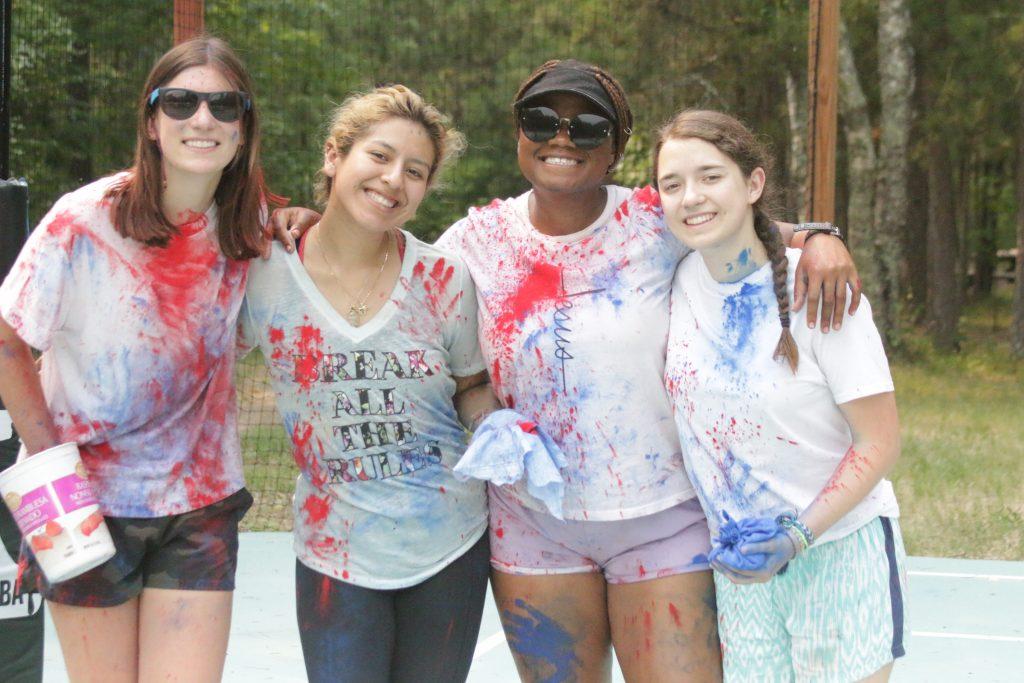
The best girls camp in the Midwest, Camp Kamaji, also has the best counselors!
Shared interests, or similar interests, form the backbone of any enduring friendship, including healthy friendships. Exploring each other’s hobbies and interests can lead to enjoyable activities that strengthen your bond as good friends.
Don’t shy away from stepping outside your comfort zone to discover new interests.
Join Clubs or Groups
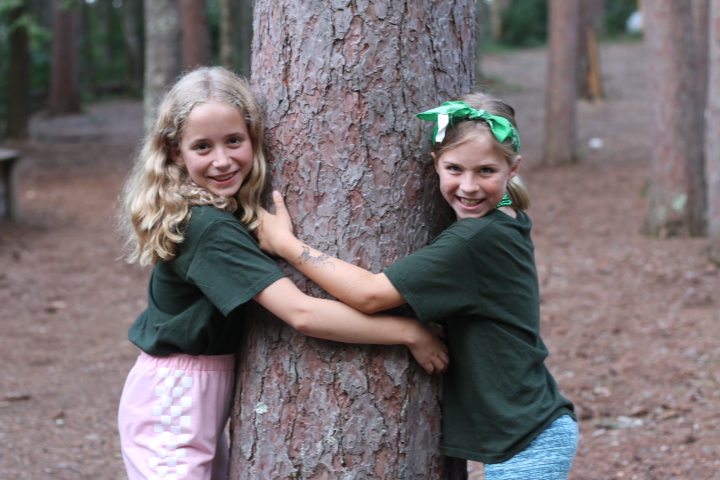
Find something you love and you’ll find someone to do that thing with helping you make friends like these campers at Camp Kamaji
One great way to find shared interests is to join an established group or clubs that align with your passions, such as a book club. These provide structured opportunities for group members to participate in activities together, allowing friendships to form naturally over shared experiences.
Attend Social Events
Social events, an essential aspect of one’s social life, are an effective platform to discover shared interests and meet new people, as well as connect with an existing group. These gatherings offer a premise for future meetups and a chance to deepen your connections based on shared enthusiasm.
4) Develop Your Listening Skills
Listening is an art that forms the cornerstone of any meaningful relationship. To be a good friend, you need to listen closely, actively, and attentively, showcasing genuine concern and making the other person feel valued.
Ask Open-Ended Questions
One way to improve your listening skills is by asking open-ended questions. These questions are designed to elicit longer, more detailed responses, encouraging deeper thinking and engagement and preventing awkward silence.
A closed question is a yes or no answer like “So, you like dancing? / Yes” but an open-ended version of this question could be “What kind of dance do you enjoy the most?” or “What’s the last song your danced to?” or “Wher
Open-ended questions might include interests, recent trips, hobbies, school, and family.
Practice Active Listening
Active listening is a dynamic process that fosters a deeper understanding of the speaker’s feelings and perspectives, building trust and facilitating positive communication change.
Cultivate Empathy
Empathy is connecting with others’ thoughts and feelings, deepening relationships, and making you more attractive to potential friends.
Empathy guides decision-making in social situations, ensuring your actions consider others’ feelings.
Show Genuine Concern for Others
Showing genuine concern for others is a powerful way to demonstrate empathy. Active listening and showing undivided attention during conversations is a sign of respect and can lead to deeper, more meaningful relationships. Invite people into your social circle since making friends is about including new people just as much as staying connected with your existing group of friends.
Validate Their Feelings
Validating others’ feelings builds trust and rapport in a friendship. It’s about recognizing and understanding their emotional experience, which doesn’t necessarily condone their actions but acknowledges the legitimacy of their emotions.
Be Authentic and Genuine
Being authentic in friendships allows individuals to feel safe and accepted for who they are, without fear of judgment or the need to compromise their own well-being.
Share Your Vulnerabilities
Sharing personal thoughts, feelings, and struggles can create a closer connection and build trust. Being transparent with friends can lead to stronger, more honest relationships.
Stay True to Your Values
Staying true to one’s values is essential in establishing and maintaining trustworthy friendships. Surrounding yourself with individuals who respect and share similar values can reinforce your commitment to those values and foster supportive, meaningful relationships.
Practice Effective Communication
Effective communication is essential in forming and nurturing friendships. It ensures that personal thoughts, feelings, and expectations are expressed clearly, reducing misunderstandings and fostering mutual understanding.
Be Clear and Concise
Clear and concise communication helps ensure that your message is easily understood. Preparing and organizing your thoughts before a conversation can lead to a clearer and more focused exchange.
Use Appropriate Body Language
As much as words matter, so does body language. It significantly influences communication, conveying emotions and intentions.
Offer Help and Support
Offering help and support to friends contributes to building relationships and mitigates feelings of isolation, fostering a shared sense of community and belonging among other members.
Volunteer Your Time
Volunteering your time to help out friends is a powerful way to show that you care. Whether it’s helping with homework or participating in a community clean-up, every act of kindness goes a long way in strengthening friendships.
Lend a Listening Ear
Sometimes, what a friend needs most is a listening ear. If you’re unsure where to start, listen, then ask follow-up questions like “Tell me more about that” or “How did that make you feel?” Being emotionally supportive during both good times and challenging times strengthens friendships.
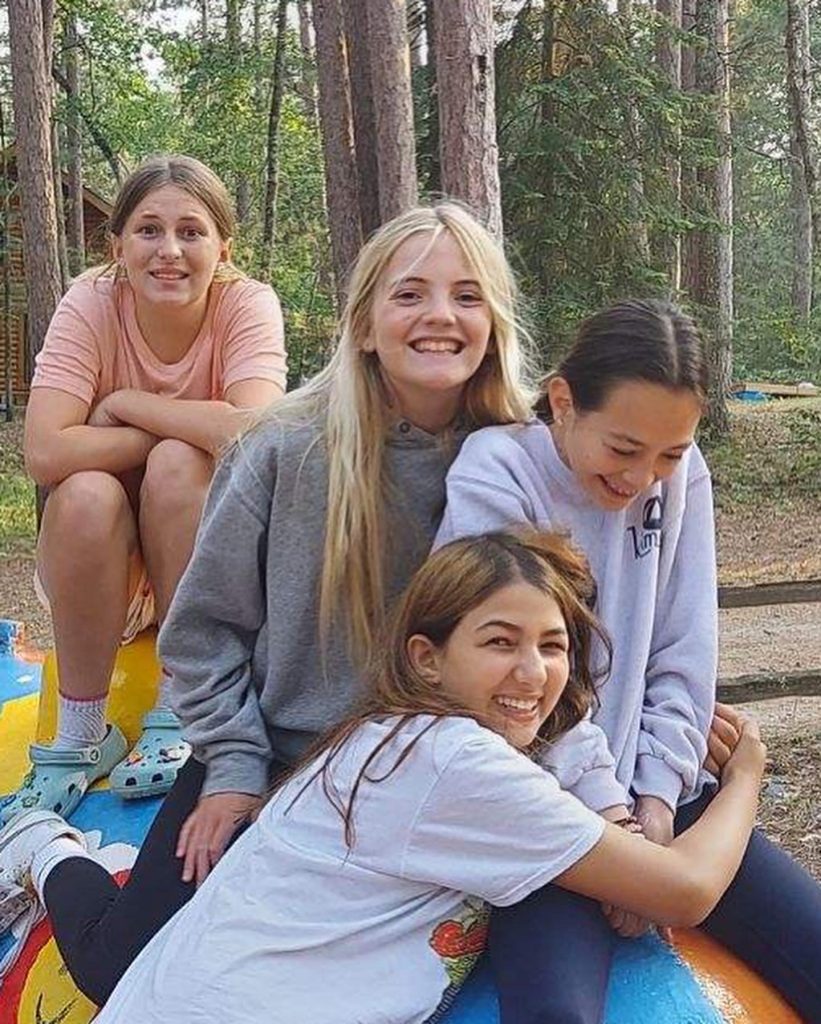
Listening is just as important as speaking when making new friends
Maintain Healthy Boundaries
Boundaries in friendships protect personal identity and space, preventing others from taking advantage or limiting personal freedoms. Setting boundaries with friends involves clear guidelines for acceptable behaviors, expectations, and personal limits.
Know Your Limits
Knowing and communicating your personal limits in your personal life is crucial to prevent resentment and distress that could arise if friends cross those boundaries.
Respect Others’ Boundaries
Respecting friends’ boundaries is as important as setting your own. Understanding when boundaries are needed can come from recognizing scenarios where friends may unintentionally overstep.
Nurture Existing Friendships
Last but not least, it’s crucial to nurture your existing friendships. Acknowledging the role of existing friends in your life provides a basis for deeper connections, which can lead to an expanded social circle, ultimately resulting in many friends.
Show Appreciation
Show your friends how much you appreciate them. Expressing gratitude and recognizing friends for their unique traits and actions contribute to the flourishing of friendships.
Strengthen Bonds
Strengthening bonds with your friends comes from spending time:
- Investing time regularly in them
- Being present during key life events
- Trying new experiences together
- Engaging in conversations on how to enrich the relationship further
These actions can help cement the bond. Still have questions? Here are some more ideas to help you build lasting friendships.
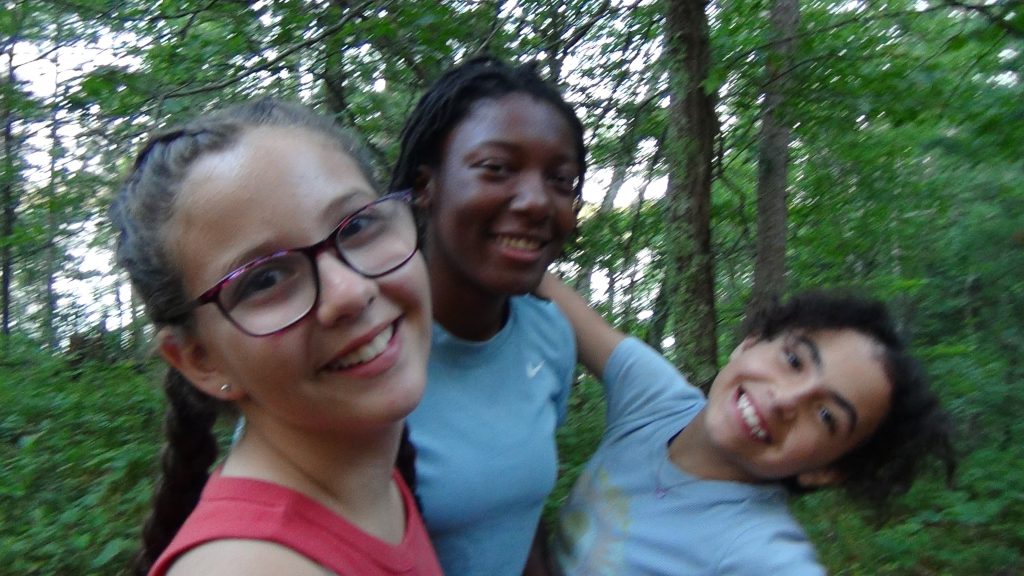
Girls learning to make new friends at Camp Kamaji, MN
To Sum it up: How girls can make new friends
Making new friends is a journey that requires positivity, shared interests, strong listening skills, empathy, authenticity, effective communication, offering help and support, maintaining healthy boundaries, and nurturing existing friendships.
—–
What is the best way to attract friends?
The best way to attract friends is by showing genuine interest in them, being a good listener, and staying connected. You can attract more friends and build lasting connections by taking the initiative, being friendly, and staying open to new experiences.
Why can’t I attract friends?
Girls can often default to being interpreted as cynical or mean, and that might turn others away. Make sure to work on yourself and prioritize your own emotional well-being, which can attract others. Also, shyness, social anxiety, and expecting too much from new acquaintances can make it hard to find friends. Ask someone you trust for their perspective to understand why you may be struggling.
How do I get into a friend group?
To get into a friend group, try having one-on-one conversations with group members to get to know them personally, and suggest activities for the group, like going to a movie or a restaurant, based on your individual friends’ interests. Saying yes to invitations can also help.
How can I nurture my existing friendships?
To nurture your existing friendships, acknowledge your friends’ role in your life, celebrate their accomplishments, spend quality time together, and show appreciation for their presence. This will strengthen your bonds and create a supportive network.
How can I meet new friends this summer?
At Camp Kamaji, making friends (and including new campers) is second nature to who we are. You’ll join a tribe of friends and you’ll be in that tribe for life, even as you return back to Kamaji year after year. It’s no surprise that we’re one of the best all-girls camps in the Midwest, where both campers and their families love seeing the growth in courage (Learn about how Kamaji celebrates courage) and independence that a summer at Camp Kamaji brings.
Wondering if Camp Kamaji girls camp might be a great way to make new friends this summer? Schedule a zoom call with Kat (Owner, director, and Kamaji Alumni) and ask any questions you have about spending this summer at Kamaji!
If you’re not ready for a Zoom call yet, check out these questions that campers ask!

